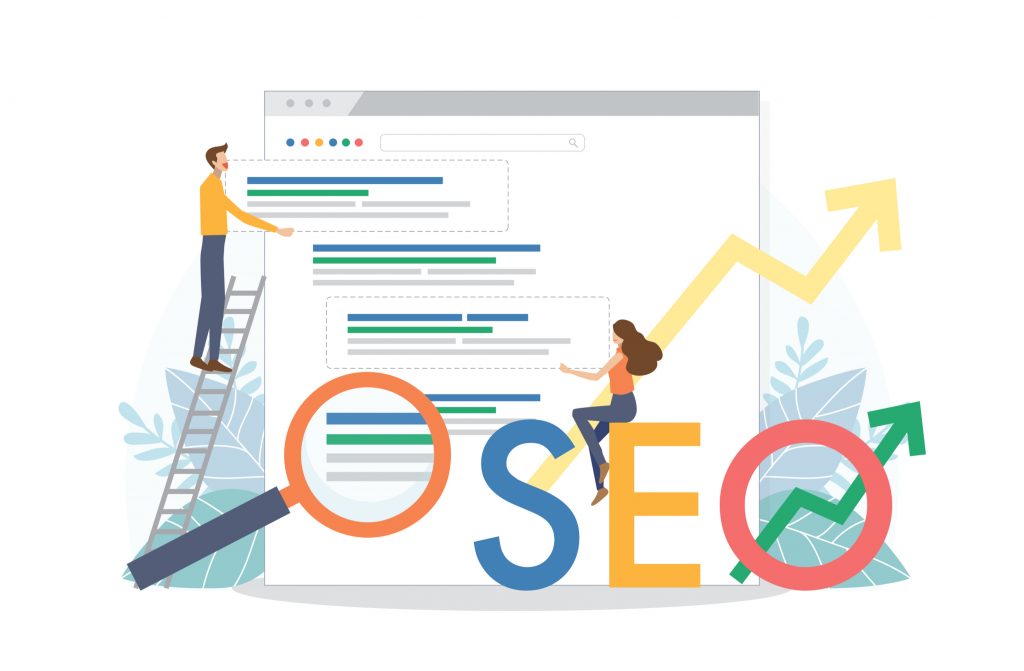
How can you be sure that when people search for information about products or services like yours they will ever see your site?
By using SEO. Essentially, SEO is optimising all your online content so that search engines can find it and display it to people who are searching for information. The higher your website ranks in the search engine result pages (SERPs), the more likely it is people will visit it.
It’s critical that your website shows up in the top results. That’s because the first five results in Google get 67% of all clicks, says Neil Patel, co-founder of Crazy Egg, Hello Bar and KISSmetrics.1
“In a world where over 90% of online experiences start with a search engine, showing up on the front page of Google can be the deciding factor between a business that’s thriving and one that’s, well, bankrupt,” he says. “There’s a joke going around the web that highlights how crucial it is to hit the first page of Google: If you ever need to hide a dead body, you should place it on the second page of Google search results.”
How to dominate SEO to get leads
Be consistent
Google’s algorithms are constantly analyzing behaviour that’s related to your website, its links and its content. To ensure you continue to get a good ranking on Google or other search engines, you need to keep working to improve your SEO.
Provide quality content
Google cares about quality and wants to improve not just the quality and relevance of its search results but all the content on the web. So if your content is poor quality, that will negatively affect your SERP rankings.
Provide long content
Google punishes sites that provide ‘thin content’ which is short in length and value. So, make sure your content is well-written, laser-focused and long.
Use keywords in your content but don’t overdo it
You must use exact match keywords and related phrases in your content but not to the point that it becomes nonsensical. If you stuff your content with keywords, it triggers Google’s Penguin algorithm, which can decimate your listings on its SERPs.
Make sure your site loads easily and quickly on mobile devices
More internet searches worldwide now occur on mobile and tablet devices than on desktops, according to web analytics company StatCounter. It found that mobiles and tablets accounted for 51.3% of internet usage compared with 48.7% by desktop.2
That’s why it’s essential that your website is mobile-friendly and is quick to load and navigate.
Get high-quality inbound links
Ensure that relevant, high-quality websites are linking to your site pages rather than low-quality spammy sites.
Find authority domains to link to you
If you focus on creating high-quality content, those links will grow. You can accelerate the speed at which you get more links by sharing content on authority sites then linking to your website content. They’ll show Google that your website/blog is a credible and reliable source of information that users can trust.
Patel, Neil, ‘SEO Made Simple: A Step-by-Step Guide’, www.neilpatel.com, 2017
Mobile and tablet internet usage exceeds desktop for first time worldwide’, StatCounter, http:// gs.statcounter.com, November 1, 2016
